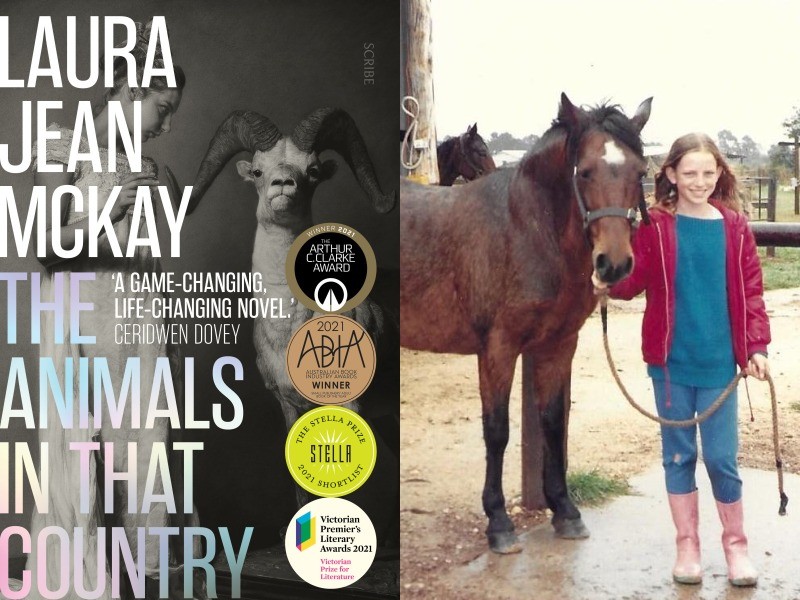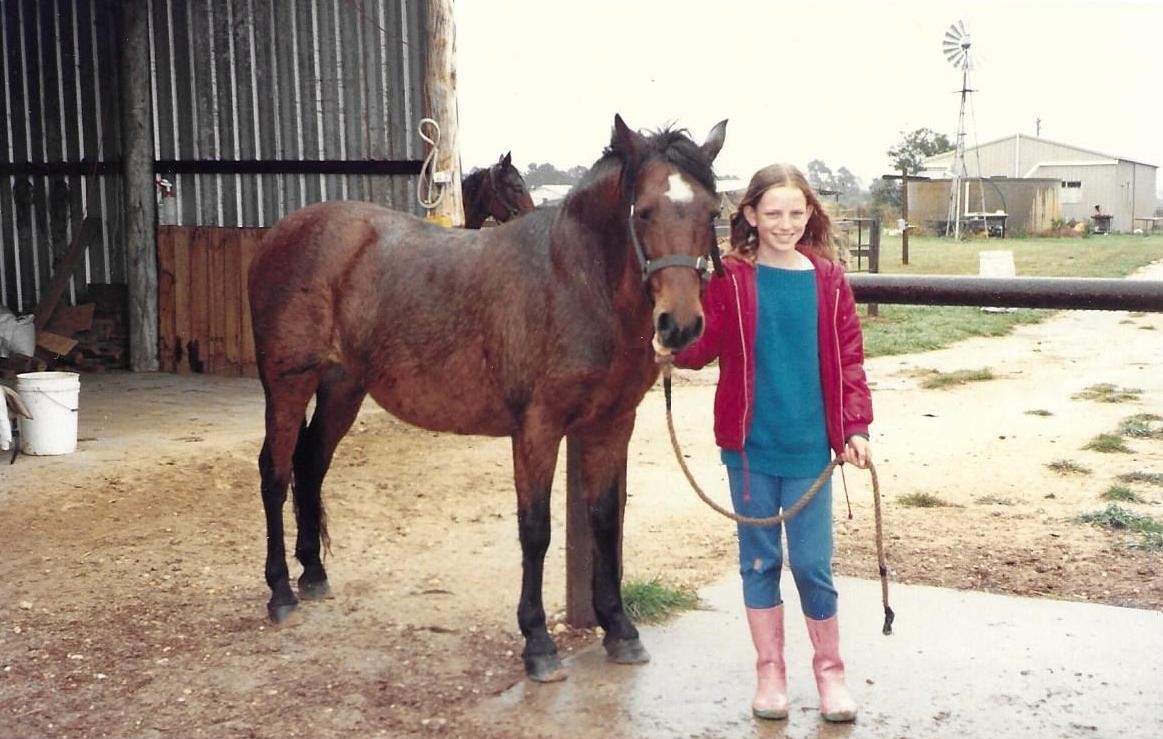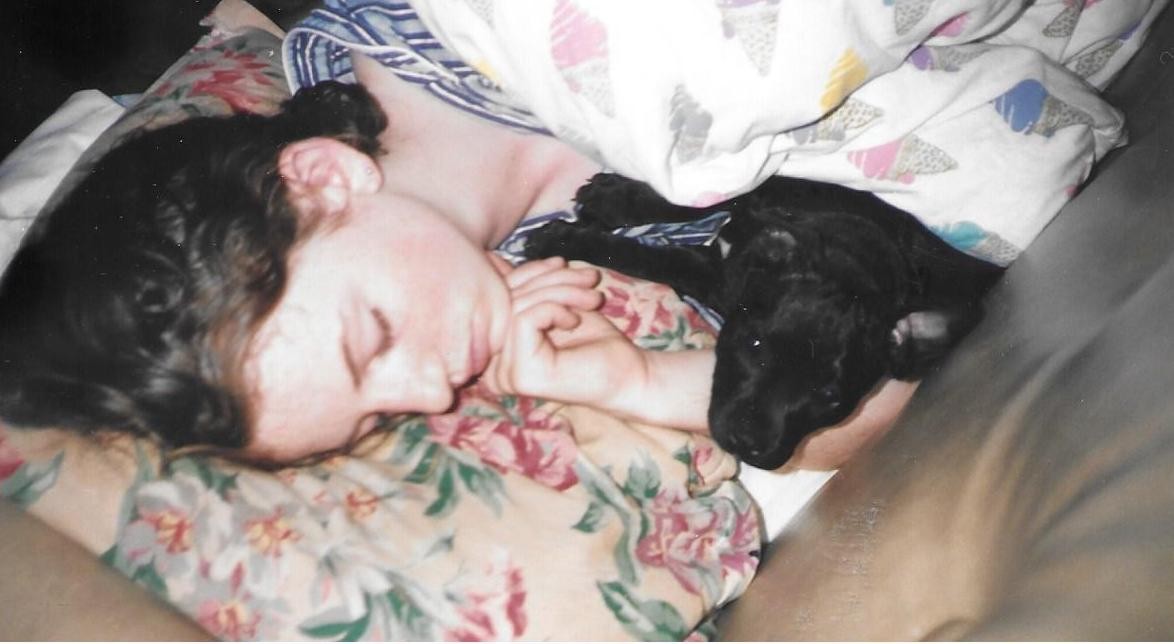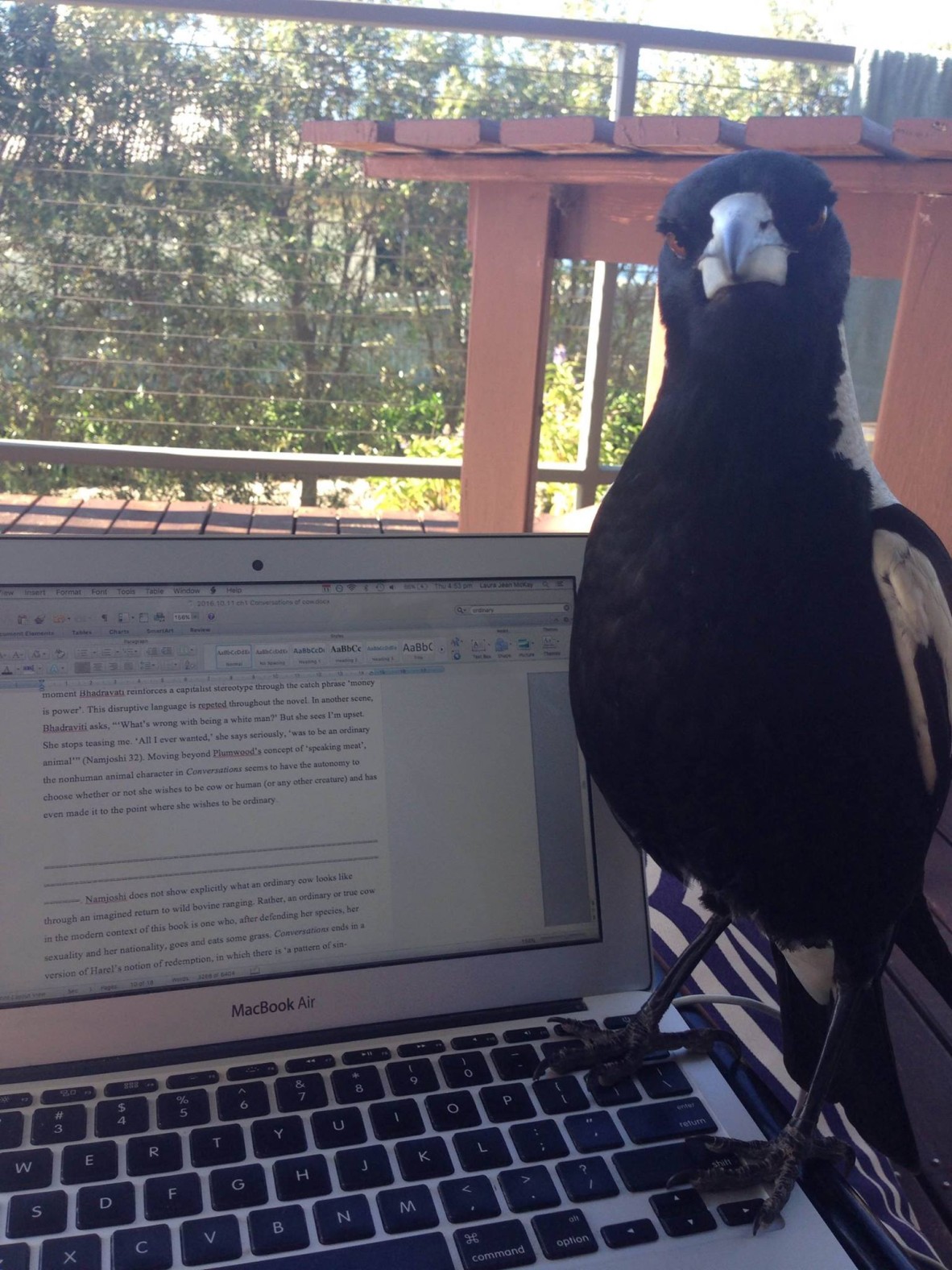The turning point: Laura Jean McKay
By Reading, Writing & Ideas | 28 March 2023
Memorable people and places, chance moments, and inspiring works of art find their way into the words writers produce. Authors of all stages can pinpoint things that have altered the course of their creative lives. They can often say, ‘That was where it changed for me.’
In this new series, we invite authors across Australia to reflect on three turning points that have shaped them, offering us glimpses into how each writer was made.
Our first post comes from the vibrant and utterly original novelist and short story writer Laura Jean McKay, whose most recent book is The Animals in that Country. Like that exquisite novel, Laura’s reflections on the turning points in her years as a writer take us to the voices and bodies of creatures great and small.

A person
We break them. The horses. We teach them to trust painful things like halters and metal bits. Bubbles is broken when she comes to me. A 13-and-a-half-foot, broad-backed, auburn beauty for a scrawny white 12-and-a-half year old girl in ripped trackie daks. I wonder that Bubbles puts up with me hacking the knots from her mane, saddling her for a ride at will and locking her in a paddock at night. Bubbles finds ways to express herself.
In the foreword to the Ukrainian edition of Animal Farm, George Orwell says, ‘I saw a little boy, perhaps ten years old, driving a huge cart-horse along a narrow path, whipping it whenever it tried to turn. It struck me that if only such animals became aware of their strength we should have no power over them, and that men exploit animals in much the same way as the rich exploit the proletariat.’
Bubbles straight up resists. She bites my bum; she puffs her stomach out when I buckle the saddle strap so I fall off sideways when she sucks it in again; she uses her teeth to let herself out of the paddock and into the gated garden to eat the lettuces. She wanders into the hallway of the house to demand hay. And one day she lets me take her right up to the back of the farm. I scream, ‘Go Bubbles, go!’ and she flies – flies. I swear we both have wings.

Laura on the farm with Bubbles. Photo by Anne Whisken.
A book
I never look at dogs the same way again after reading Eva Hornung’s Dog Boy. Headfirst into world of snow, a warm canine lair, a heartbreak that transcends species, the novel is about an urban dog pack, lead by Mamochka, bringing an abandoned little boy, Romochka, into the den. He learns to communicate with the dogs, becoming completely attune to his canine family.
Hornung writes, ‘On that first morning Romochka gave the puppies names. He surveyed them proudly. Brown, black, white, grey. All his! Then another day he gave them other names. Then he forgot their names and forgot that he had ever looked at them as a boy looks at puppies.’
Dog Boy reminds me of my dog dream. In the dream, my childhood dog Billie and I are drowning and she calls for help in the massive sea. I rescue her on a smashed plank of wood and she thanks me in a squeaky voice – her body talking rather than her mouth. At the time of the dream I’ve moved back home between share houses, and an ageing Billie wakes me by throwing herself at the bedroom door. I let her in. She pants in panic. In the days that follow, her obsession deepens. She bashes her way through the fence whenever I leave the house; I come back to her bloodied nose. When I stay home, she wraps herself around my leg, that same panting.
Unlike Romochka in Dog Boy, I’m unwilling to give myself over to this intense communication. I avoid her. The dream fades. She becomes less obsessed and either forgets or becomes resolved that I don’t understand her. Her squeaky voice haunts my head.

Laura dreaming of Billie and Billie dreaming of Laura (probably). Photo by Anne Whisken.
A place
A magpie comes to visit all the time. Or maybe I come to visit all the time. I think we both consider the rented house deck our rightful territory. She starts leaving her kids there while she goes off to terrorise her mate. I start luring her with cashew nuts, hoping to touch her soft feathers. She stands on my laptop, one claw on the delete button, slowly erasing my novel about animals.
One day she leaves the shared space of the deck and walks in through the open front door of the house. I can hear her exploratory tapping and flapping from the next room.
When I appear, she doesn’t recognise me, or I become something so terrifying in her eyes that she grows frantic, shooting around the low, skyless house. I try to lure her out with crumbs but she doesn’t see them. Her beak is open, panting in panic; she poos over everything; throws herself against the windows, the roof, the floor. I go out to the deck to give her some space.
Later, I find her inside clinging to a fly screen with her long claws. I think, as I move towards her, that she will peck me. Instead, she drops. I put a shirt over her and pick her up. She is shockingly light, almost flat, pressed like soft, feathery linen. She seems dead. I’ve always wanted to touch the magpie and when I finally do it’s a moment so dire she goes into shock. She knows she’s going to die. Until I release her and she flies shrieking into the sky, I feel I have killed her too.

Birds know no deadlines. Photo by Laura Jean McKay.
Laura Jean McKay is a Brisbane-based award-winning author and academic. Her novel The Animals in that Country won the 2021 Victorian Prize for Literature, the 2021 Victorian Premier's Award Prize for Fiction, and the 2021 Arthur C. Clarke Award. Laura's short story collection, Holiday in Cambodia, was a finalist in the 2014 Queensland Literary Awards. Forthcoming in October is her new collection, Gunflower. In 2022, Laura was awarded the NZSA Waitangi Day Literary Honours.
Comments
Your email address will not be published.
We welcome relevant, respectful comments.